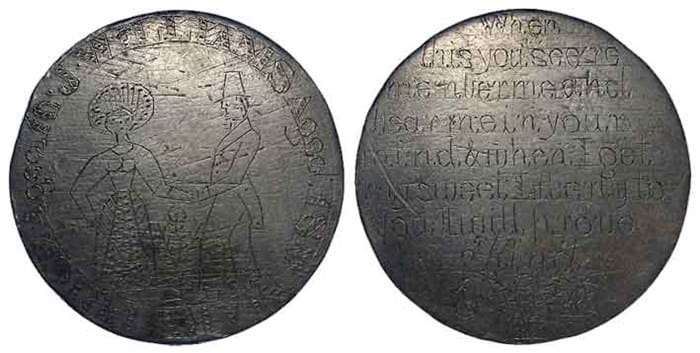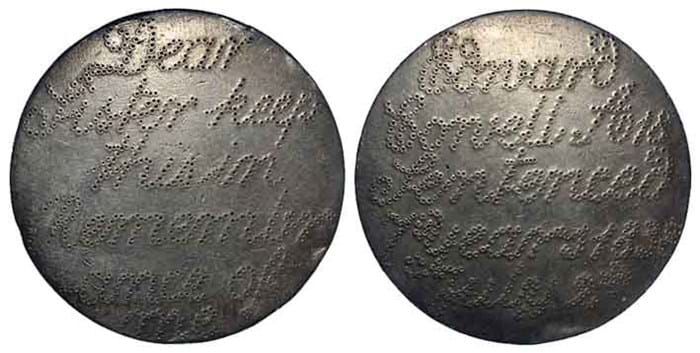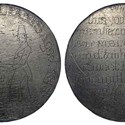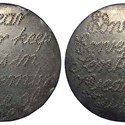Estimated at £50-60 each they sold for prices between £650 and £850 - two of them to an Australian, one to the UK with Australian underbidding.
The removal of British convicts to Australia and Tasmania during the late 18th and first half of the 19th century (1788-1868 to be exact) caused much human heartache. Although the sentences were for seven or 14 years, most transportees never returned.
Tokens such as these, also known as 'leaden hearts', speak of the parting better than any official ledger. Research suggests most were made prior to departure in British prisons where convicts had access to money and, in some cases, tools.
By smoothing and engraving low denomination copper coins (typically Georgian 'cartwheel' pennies), prisoners across several generations created tokens to leave with their loved ones as mementos. The National Museum of Australia holds the world's largest collection of convict tokens, with more than 300 in its collection.
Token Consignments
The three examples offered at Lockdales on January 25-26 from the same UK private collection give a good range of typical; style and decoration (many follow a similar formula suggesting that workshop-like conditions may have existed).
The simplest of the three, sold at £650, was stipple engraved to one side Edward Conell A18 Sentenced 7 years 1838 July 2nd and to the other Dear Sister keep this in Remembrance of me.
More sophisticated was the token engraved with an image of a man and woman in hat and bonnet and inscribed J. Williams Aged 18 and Mary Price Aged 16.To the reverse it read: When this you see remember me and hear me in your mind & when I get my sweet Liberty to you I will prove Kind.
Most highly prized at £850 was the token engraved in 1828 by John Tucker for his sweetheart Sarah Glover. It read: Here I lies on a bed of straw with an un-happy mind, but never mind it will not be long if fortune does prove kind.
The buyer's premium was 17.25%.









